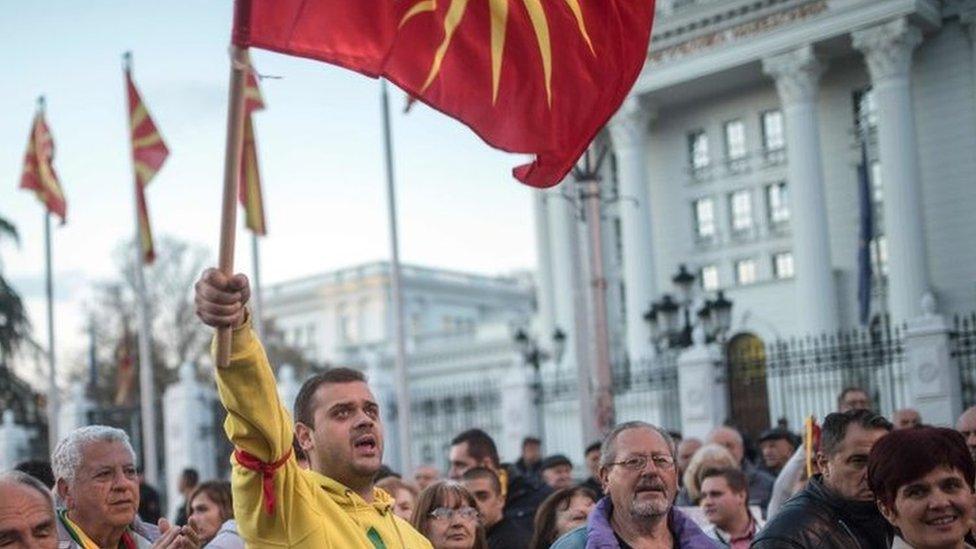Mayhem in Macedonia: Searching for an end to volatile stalemate
- Published
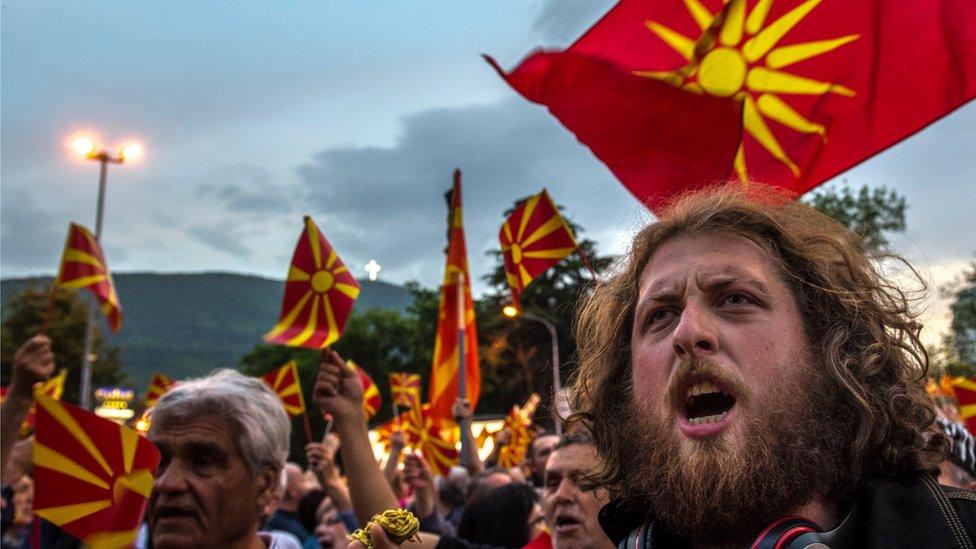
Supporters of the Civil Initiative for United Macedonia staged protests in Skopje
"Izbori! Izbori!" chants the crowd, dressed in patriotic red and yellow, outside parliament in Macedonia's capital, Skopje.
Lest there be any confusion, a middle-aged woman, spotting the BBC's microphone, leans in to elaborate at considerable volume.
"Tell them we want an election," she demands.
It may seem odd to call for another vote barely six months since the last one. But Macedonians are in shock.
Hundreds of thugs, some of them masked, stormed parliament and beat up MPs and journalists as a political crisis became more sinister.
One of Macedonia's leading politicians, Radmila Sekerinska, still wears an orthopaedic collar, a week after a man swung her around by the hair and injured her neck.
A brawl broke out when protesters stormed the parliament in Skopje
"The thugs were invited; doors were opened for them. Our profession is risky - but never before in my life have I felt the imminent danger of being killed because of a political position," says Ms Sekerinska, deputy leader of the Social Democrats.
Why Macedonia's deadlock went violent
Last December, this Balkan country's two main parties won nearly identical numbers of seats.
The Social Democrats, then in opposition, gained a parliamentary majority by going into coalition with parties favoured by the country's sizeable ethnic-Albanian minority.
And yet they have not been able to form a government - because Macedonia's other main party has blocked them.
VMRO-DPMNE may sound like a winning hand at Scrabble. But for more than a decade they were Macedonia's party of government, led by Prime Minister Nikola Gruevski. And they are proving extremely reluctant to give up power.
Supported by their ally, President Gjorge Ivanov, they have frustrated the Social Democrats' attempts to obtain an official mandate. Mr Ivanov has flatly refused to give his approval, while VMRO MPs staged filibusters. This has gone on for almost five months.
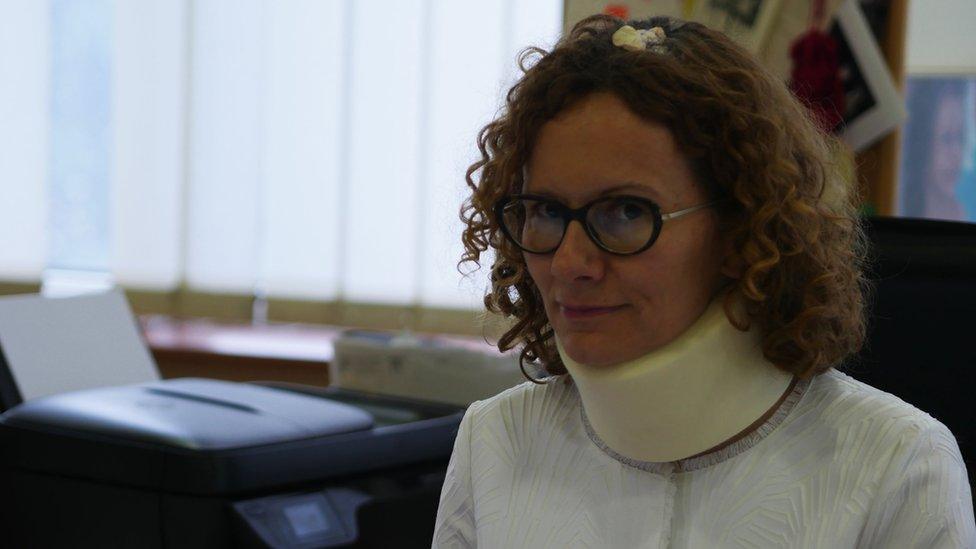
Radmila Sekerinska has been wearing a neck collar since she was attacked in parliament
Mr Ivanov claimed the Social Democrats were threatening the unity of the country by offering concessions to Macedonia's ethnic-Albanians. Therefore, he could not allow them to take office.
Last week, the coalition attempted to force the president's hand, by electing a new parliamentary speaker. Their celebrations were cut short when protesters entered parliament.
Ms Sekerinska believes Mr Ivanov's professed concerns about ethnic issues are simply a tool to obscure the real issue.
"Whatever they have done is with only one purpose - to prevent a peaceful transfer of power. Because a new reform-oriented government would mean criminal accountability for some of the people who have stolen millions of euros from the people of Macedonia," she said.
'Foreign agendas'
VMRO leaders - including the prime minister - have been under investigation by special prosecutors for abuse of power and corruption. But senior member and interim Foreign Minister Nikola Poposki insists the party will allow a transfer of power.
"The majority should rule and I don't think this will be prevented. But we need credible reassurances that foreign agendas and federalisation are not going to happen," he says.
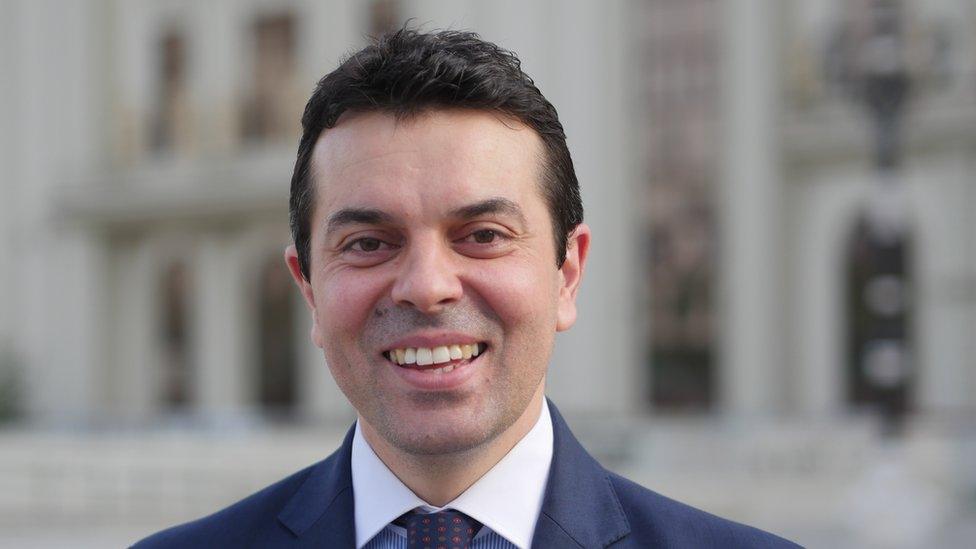
Interim foreign minister Nikola Poposki says his VMRO party will not prevent a transfer of power
The Social Democrats say they can provide those assurances. But even if positions may be softening, the damage to democracy in the Western Balkans may take time to repair because of the shock of last week's violent episode in parliament.
"If a functioning government is not in place, we can't exclude violence," says Simonida Kacarska, the director of Skopje's European Policy Institute.
"We are also risking diminishing or violating the rule of law principles both here and as an example to countries in the region. It shows how one country can become hostage to a political elite that does not want to let go."
- Published28 April 2017

- Published10 June 2024
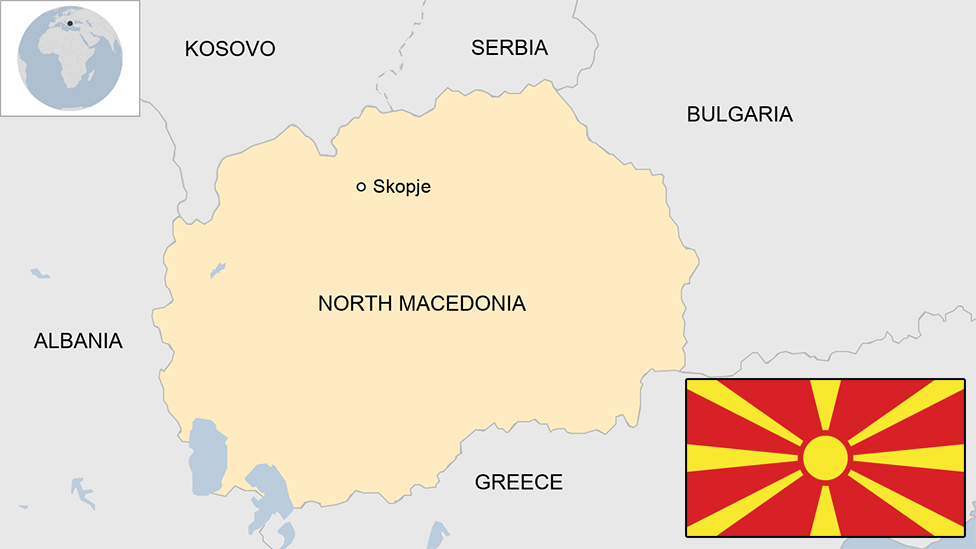
- Published1 March 2017
